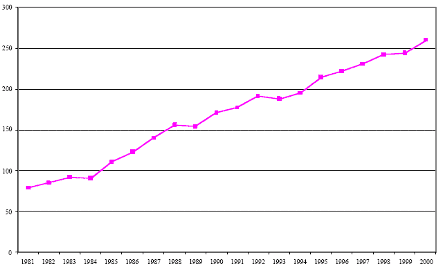Over the last three decades, we have seen an increasing focus on information disclosure in accounting statements. While this trend has its roots in the United States, it has spread to other markets as well. While the objective of increased disclosure is noble – to provide investors with more information about the companies that they invest in – there have been unintended side consequences that are not so favorable.
First, the proliferation of accounting rules and the level of detail required in reporting have made financial statements more and more complex. For example, consider the liability side of the balance sheet of a typical U.S. firm. Thirty years ago, it would have shown current liabilities (accounts payable, supplier credit and short term debt), long term debt (bank loans and corporate bonds) and shareholders’ equity (paid-in capital and retained earnings). Today, you would see in addition to these three items, a host of other liabilities including unfunded pension liabilities and health care benefits and provisions for future legal liabilities.
Second, the increasing level of detail both in the financial statements themselves and the footnotes that follow often obscures more important information about the firm. In other words, financial statements sometimes become data dumps that are difficult to navigate for investors.
To provide an illustration of how much accounting rules have added to the heft of financial statements, we looked at the number of pages in the 10Ks filed by Procter and Gamble, with the SEC starting in 1981 and going through 2000. While some of this increase can be traced to the increasing complexity of P&G’s business, a large portion of it reflects the effects of new accounting edicts and rules.
Figure 1: Number of pages in 10K- P & G

Prof. Aswath Damodaran
Next: Business Mix
Summary: Index